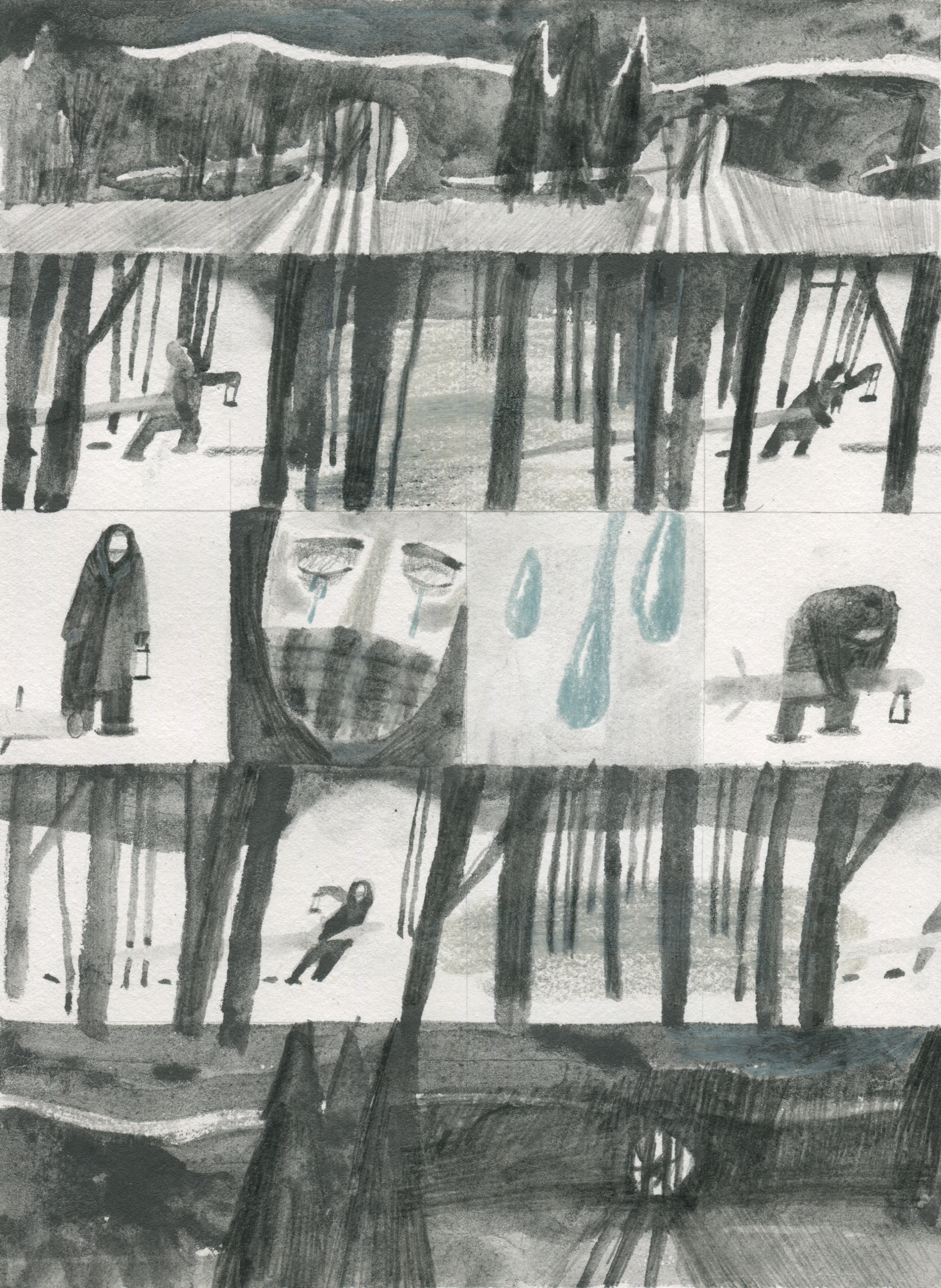Lusy
Olga Ptashnik
This is a story about my grandmom, about her life and returning to the village where she grew up. She was six when she left the village and seventy when she returned. In that span of time, the open spaces have been filled by thick forests, the personal computer was invented, and my grandmother and I use Whatsapp to call each other.
This project of seven drawings was made during my Comic Continent Residency in 2018. Some of the images are overlaid with drawn photos, with memories written on the backside of the photos. The viewer can take the photos off of the larger drawings and read the memories.
Imagine yourself sitting at the table with Grandmom, looking through photos and listening.
* * *
My grandmom, Lusy, was born a barefoot girl in the early years of the Soviet Union. She saw wars and revolutions. She became a scientist. She is a witness of history. I didn't know her full story until my 20s. It is difficult to break through the shields of food, family, and everyday routines to talk about feelings and important memories.
Lusy was born in a small village with three streets. The whole family lived together in her grandmom's house. There was one room with wooden benches to sleep on, and a special room for the cattle. My great-great-grandmom became a widow with five children before the revolution. Because she refused to join the collective farm she was dispossessed. The government took everything: utensils, cattle, clothes. She had to walk to the city to sell goat milk and dolls which she made herself, 20km each way, in bast shoes.
My great-grandparents were working in the fields and raising children. In 1939, my great-grandfather was conscripted to the Russian-Finland war. Following that, he fought in World War II. He wouldn’t come back home for seven years.
My great-grandfather was a tank driver in WWII. In Latvia, in 1945, his tank was shot down and his eyes were burned. His comrade’s legs were injured. The man with injured legs climbed onto the blind man’s back, and together they managed to leave the field. Great-grandpa didn't want to come back home injured, and tried to kill himself at the hospital. They had to tie him up. After a time he was cured and could see again. He was retired from the military and sent to work in Western Germany until 1946.
All this time, my great-grandmom would raise three children by herself. Women in the village worked hard all day, and at night would go to collect wood to warm their houses. Once, my great-grandmom went to the forest and there were no more branches—everything had been collected. So she dragged the whole tree home. She knew she had to.
My great-grandfather came back home after 7 years of war. He took the family to the city to give his children an education, and learned to read and write himself. He never talked about the war.
In 2015, Grandmom and I visited her home village together. I saw the house she lived in, the trees she used to climb as a child and the tiny river she swam in. I stood in the dark forest with Lusy, my granny. She remembers this place when it was a field. The forest has grown up during her life.











